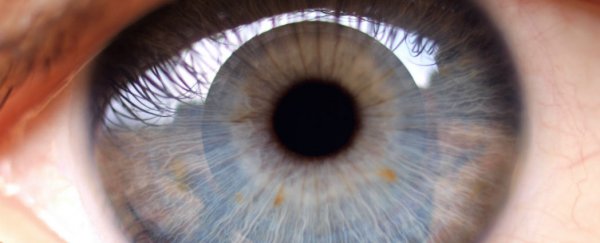Your eyesight may be about to get a huge boost if a new bionic lens makes it to market. Invented by an optometrist in Canada, the Ocumetics Bionic Lens promises to enhance eyesight to a level that's three times better than 20/20 - the universal standard for normal vision.
These aren't lenses you pop in and out, though - the lens developed by Gareth Webb is inserted into the eye via a painless procedure that takes less than 10 minutes (Webb says the process is a lot like cataract surgery). The lenses don't degrade over time so you'll never have a problem with cataracts or failing vision no matter how long you live.
The Ocumetics Bionic Lens incorporates a patented miniature optics system that works like a tiny digital camera: powered by the body, it can shift focus from close range objects to objects any distance away faster than the human eye is able to.
Such technology isn't invented in a day, of course - the lens has been eight years in the making and has cost US$3 million to develop so far. "This is vision enhancement that the world has never seen before," Webb told CBC News. "If you can just barely see the clock at 10 feet, when you get the Bionic Lens you can see the clock at 30 feet (9 metres) away."
Ocumetics Technology Corp, which owns the technology, says it's safe and durable. The implanted lens feels natural and won't cause headaches or any kind of eyestrain. Nevertheless, there's a way to go before it hits the market: a launch has been tentatively set for 2017, after extensive clinical trials have been completed.
For Webb, it's an innovation that's close to his own heart: "At age 45 I had to struggle with reading glasses, which like most people, I found was a great insult," he says. "To this day I curse my progressive glasses. I also wear contact lenses, which I also curse just about every day. My heroes were cowboys, and cowboys just did not wear glasses."
If the Ocumetics Bionic Lens makes it to market then a whole host of eyesight problems could be overcome, not least having to wear glasses or contact lenses. Clinical trials are now set to begin on animals and blind human beings.
In addition to his main work on the bionic lenses, Webb has set up a charitable foundation called Celebration of Sight, dedicated to helping organisations that provide eye surgery in developing countries. Funds have also been earmarked for eye research institutes across the world.
